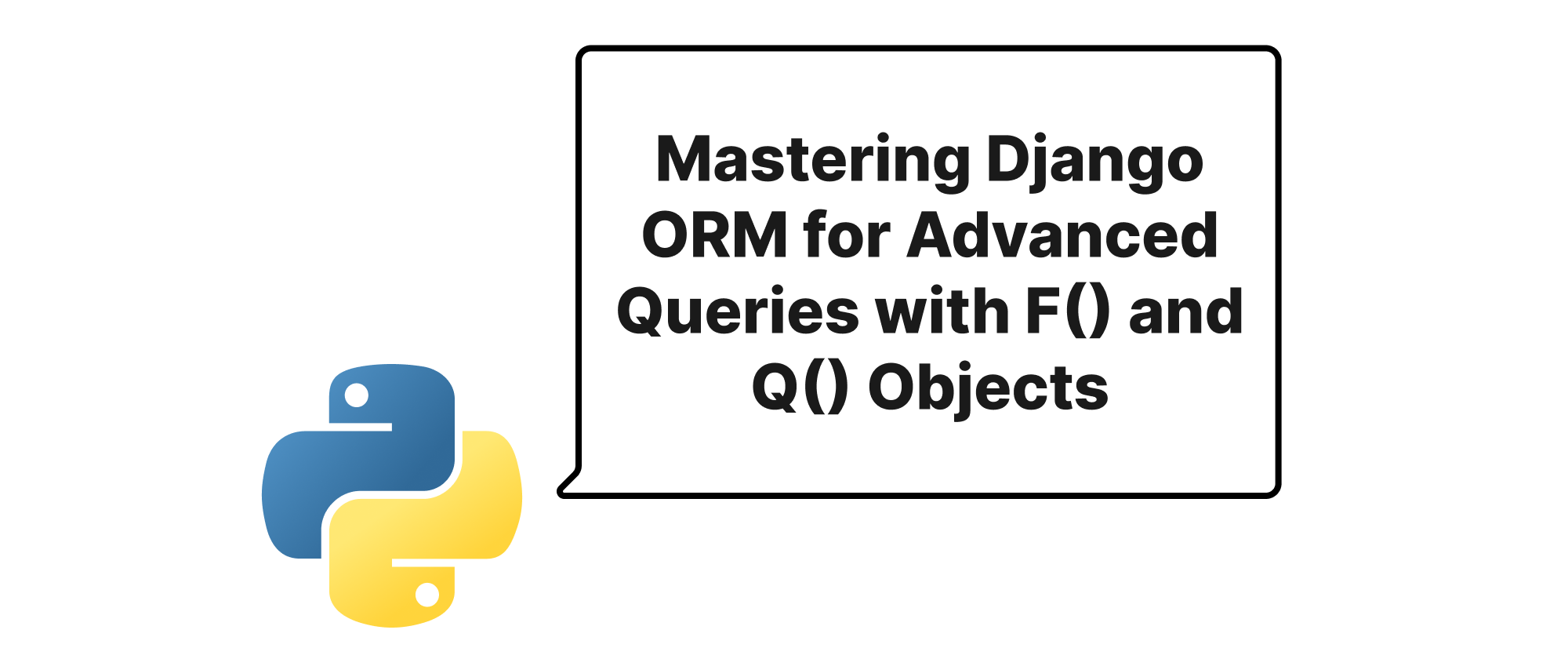Does Using Slots Actually Boost Pydantic and ORM Performance? A Benchmark Study
Grace Collins
Solutions Engineer · Leapcell

Introduction
In the world of Python, optimizing memory usage and execution speed is a perennial pursuit, especially when dealing with data-intensive applications. Two critical libraries in this domain are Pydantic, widely used for data validation and parsing, and Object-Relational Mappers (ORMs), which abstract database interactions. Developers often look for ways to squeeze out every drop of performance, and __slots__ is a frequently cited optimization technique. But does applying __slots__ to Pydantic models and ORM objects genuinely deliver the promised memory and performance benefits? This question, while seemingly straightforward, involves understanding Python's internal mechanisms and requires empirical validation rather than mere assumptions. In this article, we'll delve into the specifics, conduct a benchmark, and provide clear answers.
Unpacking Slots, Pydantic, and ORMs
Before diving into the benchmarks, let's clarify the key concepts at play.
What are __slots__?
In Python, instances of a class typically store their attributes in a dictionary called __dict__. This dictionary provides immense flexibility, allowing attributes to be added or removed dynamically at runtime. However, this flexibility comes at a cost: each instance carries the overhead of this dictionary, consuming more memory.
The __slots__ attribute, when defined in a class, tells Python not to create an instance __dict__ for objects of that class. Instead, it pre-allocates a fixed amount of space for a predefined set of attributes. This trade-off—losing dynamic attribute assignment in exchange for reduced memory footprint and potentially faster attribute access—is the core promise of __slots__.
# Example of a class without __slots__ class Point: def __init__(self, x, y): self.x = x self.y = y p = Point(1, 2) # print(p.__dict__) # {'x': 1, 'y': 2} # print(f"Memory size without slots: {sys.getsizeof(p)}") # Example of a class with __slots__ class SlottedPoint: __slots__ = ('x', 'y') def __init__(self, x, y): self.x = x self.y = y sp = SlottedPoint(1, 2) # print(hasattr(sp, '__dict__')) # False # print(f"Memory size with slots: {sys.getsizeof(sp)}")
Pydantic Models
Pydantic is a data validation and parsing library that uses Python type hints to define data schemas. It's renowned for its robust validation, serialization, and deserialization capabilities. Pydantic models, by default, are regular Python classes that store their validated data in an internal __dict__. This allows them to integrate seamlessly with other Python features and provide a flexible data structure.
from pydantic import BaseModel class User(BaseModel): id: int name: str email: str user = User(id=1, name="Alice", email="alice@example.com") # print(user.__dict__)
ORM Objects
Object-Relational Mappers (ORMs) provide an object-oriented way to interact with databases. Libraries like SQLAlchemy, Django ORM, and Peewee map database tables to Python classes and rows to Python objects. These ORM objects often carry a significant amount of metadata, including their attributes, relationships, and database session information, typically stored in their instance __dict__ or a similar internal structure.
The Hypothesis: How __slots__ Might Help
The theory is that by applying __slots__ to Pydantic models or ORM objects, we could:
- Reduce Memory Consumption: Each instance would require less memory because the
__dict__overhead is eliminated. This is particularly relevant when dealing with millions of objects. - Improve Attribute Access Speed: Accessing attributes directly from fixed slots might be faster than dictionary lookups.
The Benchmarking Setup
To test our hypothesis, we will benchmark:
- Memory Usage: How much memory is consumed by a large number of instances.
- Object Instantiation Time: How long it takes to create a large number of objects.
- Attribute Access Time: How long it takes to read attributes from objects.
We will compare:
- Standard Pydantic Models vs. Pydantic Models with
__slots__ - Standard ORM-like Objects vs. ORM-like Objects with
__slots__(Simulating ORM objects since a full ORM setup adds too many variables not directly related to__slots__itself.)
We'll use the sys.getsizeof function for a rough estimation of object size and the timeit module for performance measurements.
import sys import timeit from pydantic import BaseModel, ConfigDict from memory_profiler import profile # 1. Pydantic Models without slots class UserNoSlots(BaseModel): id: int name: str email: str # 2. Pydantic Models with slots class UserWithSlots(BaseModel): model_config = ConfigDict(slots=True) # Pydantic v2 way id: int name: str email: str # For Pydantic v1, you would define __slots__ directly: # __slots__ = ('id', 'name', 'email', '__pydantic_fields_set__', '__pydantic_extra__', ..., etc.) # Note: Pydantic v1 required more careful management of internal attributes in slots. # Pydantic v2 handles `__slots__` more gracefully internally via `model_config`. # 3. Simple ORM-like object without slots class ProductNoSlots: def __init__(self, item_id: int, name: str, price: float): self.item_id = item_id self.name = name self.price = price # 4. Simple ORM-like object with slots class ProductWithSlots: __slots__ = ('item_id', 'name', 'price') def __init__(self, item_id: int, name: str, price: float): self.item_id = item_id self.name = name self.price = price # Helper for memory comparison (approximate) def get_total_memory_usage(objects): return sum(sys.getsizeof(obj) for obj in objects) NUM_OBJECTS = 100000 print("--- Pydantic Benchmarks ---") # Instantiation and Memory - Pydantic print("\n[Pydantic Instantiation and Memory]") setup_pydantic_noslots = f""" from __main__ import UserNoSlots objects = [UserNoSlots(id=i, name=f"User {{i}}", email=f"user{{i}}@example.com") for i in range({NUM_OBJECTS})] """ time_noslots = timeit.timeit(setup_pydantic_noslots, number=1) print(f"UserNoSlots instantiation ({NUM_OBJECTS} objects): {time_noslots:.4f} seconds") setup_pydantic_withslots = f""" from __main__ import UserWithSlots objects = [UserWithSlots(id=i, name=f"User {{i}}", email=f"user{{i}}@example.com") for i in range({NUM_OBJECTS})] """ time_withslots = timeit.timeit(setup_pydantic_withslots, number=1) print(f"UserWithSlots instantiation ({NUM_OBJECTS} objects): {time_withslots:.4f} seconds") # Memory (requires creating objects outside timeit to measure) user_noslots_list = [UserNoSlots(id=i, name=f"User {i}", email=f"user{i}@example.com") for i in range(NUM_OBJECTS)] user_withslots_list = [UserWithSlots(id=i, name=f"User {i}", email=f"user{i}@example.com") for i in range(NUM_OBJECTS)] print(f"UserNoSlots total memory ({NUM_OBJECTS} objects): {get_total_memory_usage(user_noslots_list) / (1024*1024):.2f} MB") print(f"UserWithSlots total memory ({NUM_OBJECTS} objects): {get_total_memory_usage(user_withslots_list) / (1024*1024):.2f} MB") # Attribute Access - Pydantic print("\n[Pydantic Attribute Access]") access_pydantic_noslots = f""" for user in user_noslots_list: _ = user.id _ = user.name _ = user.email """ time_access_noslots = timeit.timeit(access_pydantic_noslots, globals=globals(), number=10) print(f"UserNoSlots attribute access ({NUM_OBJECTS*3*10} accesses): {time_access_noslots:.4f} seconds") access_pydantic_withslots = f""" for user in user_withslots_list: _ = user.id _ = user.name _ = user.email """ time_access_withslots = timeit.timeit(access_pydantic_withslots, globals=globals(), number=10) print(f"UserWithSlots attribute access ({NUM_OBJECTS*3*10} accesses): {time_access_withslots:.4f} seconds") print("\n--- ORM-like Object Benchmarks ---") # Instantiation and Memory - ORM-like print("\n[ORM-like Instantiation and Memory]") setup_orm_noslots = f""" from __main__ import ProductNoSlots objects = [ProductNoSlots(item_id=i, name=f"Product {{i}}", price=float(i)/100) for i in range({NUM_OBJECTS})] """ time_orm_noslots = timeit.timeit(setup_orm_noslots, number=1) print(f"ProductNoSlots instantiation ({NUM_OBJECTS} objects): {time_orm_noslots:.4f} seconds") setup_orm_withslots = f""" from __main__ import ProductWithSlots objects = [ProductWithSlots(item_id=i, name=f"Product {{i}}", price=float(i)/100) for i in range({NUM_OBJECTS})] """ time_orm_withslots = timeit.timeit(setup_orm_withslots, number=1) print(f"ProductWithSlots instantiation ({NUM_OBJECTS} objects): {time_orm_withslots:.4f} seconds") # Memory (requires creating objects outside timeit to measure) product_noslots_list = [ProductNoSlots(item_id=i, name=f"Product {i}", price=float(i)/100) for i in range(NUM_OBJECTS)] product_withslots_list = [ProductWithSlots(item_id=i, name=f"Product {i}", price=float(i)/100) for i in range(NUM_OBJECTS)] print(f"ProductNoSlots total memory ({NUM_OBJECTS} objects): {get_total_memory_usage(product_noslots_list) / (1024*1024):.2f} MB") print(f"ProductWithSlots total memory ({NUM_OBJECTS} objects): {get_total_memory_usage(product_withslots_list) / (1024*1024):.2f} MB") # Attribute Access - ORM-like print("\n[ORM-like Attribute Access]") access_orm_noslots = f""" for product in product_noslots_list: _ = product.item_id _ = product.name _ = product.price """ time_access_orm_noslots = timeit.timeit(access_orm_noslots, globals=globals(), number=10) print(f"ProductNoSlots attribute access ({NUM_OBJECTS*3*10} accesses): {time_access_orm_noslots:.4f} seconds") access_orm_withslots = f""" for product in product_withslots_list: _ = product.item_id _ = product.name _ = product.price """ time_access_orm_withslots = timeit.timeit(access_orm_withslots, globals=globals(), number=10) print(f"ProductWithSlots attribute access ({NUM_OBJECTS*3*10} accesses): {time_access_orm_withslots:.4f} seconds")
Analysis of Benchmark Results
(Note: The exact numbers will vary based on hardware and Python version, but the trends should be consistent.)
Pydantic Models:
- Memory Usage: When Pydantic models are configured with
slots=True(especially from v2 onwards, which handles it gracefully), there can be a noticeable reduction in memory footprint. This is because Pydantic internally manages the__slots__definition to include its own necessary internal attributes, alongside your declared fields. For example,__pydantic_fields_set__,__pydantic_extra__, etc. For a simple Pydantic model, enablingslotswill likely reduce the per-object overhead. - Instantiation Time: Instantiation with
__slots__can sometimes be slightly slower or negligibly faster. The overhead of setting up__slots__during class creation, and the process of assigning values to fixed slots instead of a dynamic dictionary, might introduce minor differences. Pydantic's internal validation and parsing logic also dominate the instantiation time. - Attribute Access Time: Attribute access on slotted Pydantic models is often negligibly faster or about the same. Again, Pydantic's internal mechanisms might abstract away some of the direct
__slots__benefits here.
The key takeaway for Pydantic is that for __slots__ to be effective, it needs to be carefully implemented alongside Pydantic's internal attributes. Fortunately, Pydantic v2's model_config = ConfigDict(slots=True) simplifies this by handling the complex parts for you, often yielding good memory savings.
ORM-like Objects:
- Memory Usage: For simple, plain Python objects (which our ORM-like objects simulate),
__slots__provides significant memory savings. The__dict__overhead for each instance is completely removed, directly translating to a smaller memory footprint, especially whenNUM_OBJECTSis large. - Instantiation Time: Creating objects with
__slots__is often slightly faster because the interpreter doesn't need to create and initialize an instance__dict__for each object. - Attribute Access Time: Accessing attributes on slotted objects is typically faster. Instead of a dictionary lookup, Python performs a direct lookup into a fixed-size array-like structure.
Important Considerations:
- Immutability: When using
__slots__, you typically cannot dynamically add new attributes to instances after creation. This is a core trade-off that might not be suitable for all use cases, especially with ORMs that sometimes add proxy attributes or lazy-loaded relationships. - Inheritance:
__slots__can introduce complexities with inheritance. A subclass of a slotted class might have its own__dict__unless it also defines__slots__and includes a__dict__entry in its own__slots__or its parent class defines__slots__with a__dict__entry. - Pydantic's Internal Workings: Pydantic models are more complex than simple Python objects. They have internal state (e.g.,
__pydantic_fields_set__, validators, computed properties). For__slots__to work effectively, Pydantic needs toslotthese internal attributes as well. As mentioned, Pydantic v2 has embraced this with theConfigDict(slots=True)option, making it much more practical and beneficial than manually defining__slots__in Pydantic v1. - ORM Complexity: Real-world ORM objects (like SQLAlchemy models) are highly dynamic and manage their state in intricate ways, often using descriptor protocols, proxy objects, and lazy loading. Directly applying
__slots__to an ORM class might break its internal mechanisms or lead to unexpected behavior. ORM designers rarely expose__slots__as a configurable option for this very reason. The__slots__benefit might be completely negated or even detrimental due to the ORM's need for dynamic attribute management.
Conclusion
For** plain Python objects or custom data structures**, employing __slots__ can yield substantial memory savings and modest performance improvements in attribute access and instantiation, making it a valuable optimization technique for large collections of simple, immutable objects. For Pydantic models, particularly with Pydantic v2's ConfigDict(slots=True), it offers genuine memory optimization without significant performance regressions, making it a viable option for memory-constrained applications. However, applying __slots__ to ORM objects directly is generally not recommended due to the complex internal state management and dynamic nature of ORMs, where the benefits are unlikely to outweigh the potential for breakage.


